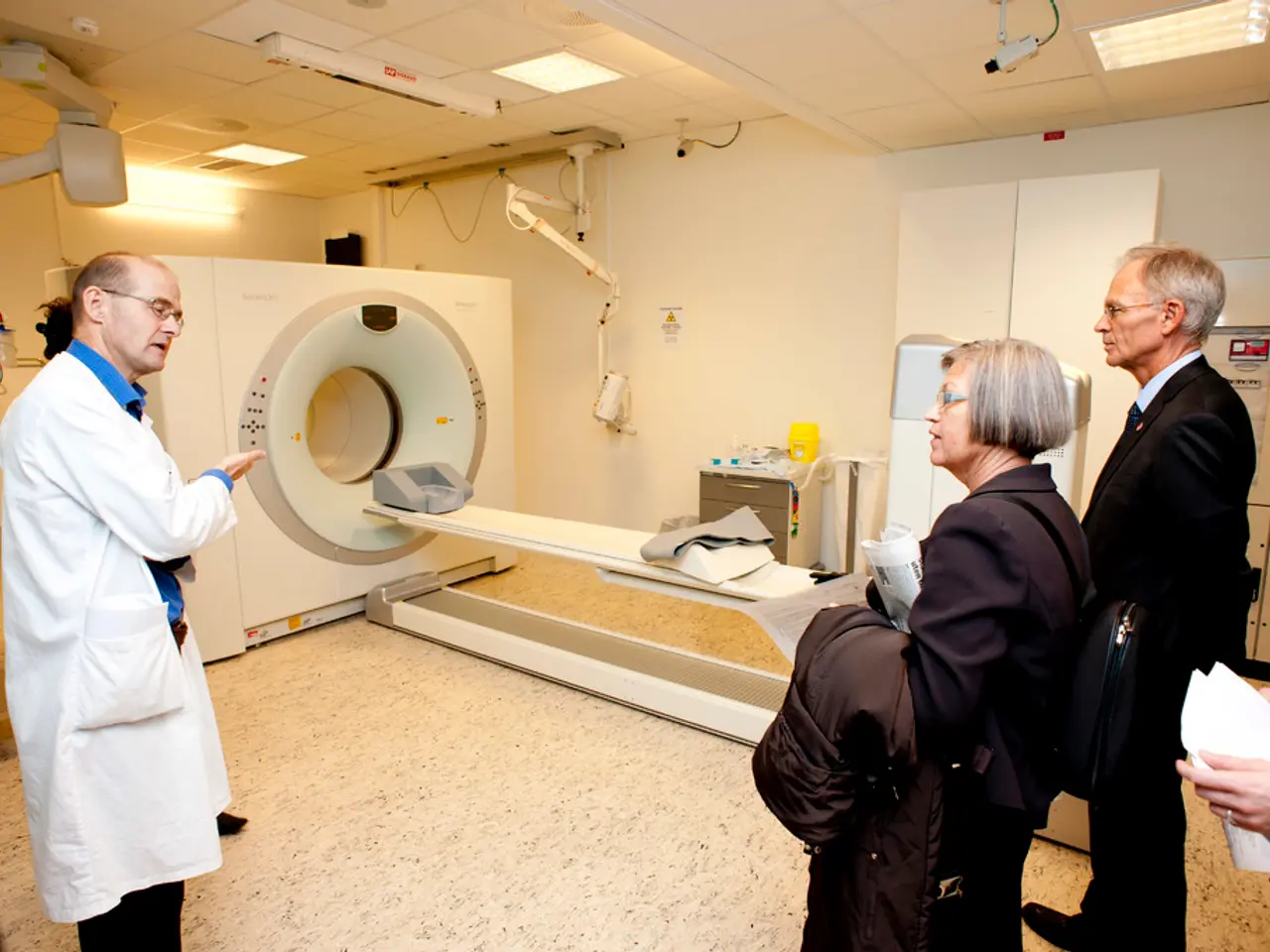AI-assisted medical diagnosis less reliable in detecting cancer, according to recent study
In recent studies, the long-term effects of doctors relying on AI tools for cancer detection and diagnosis have been a subject of concern. While AI can enhance the detection of cancers, such as in colonoscopies, by improving adenoma detection rates, there are indications that over-reliance on these tools can lead to a decline in doctors' skills.
Key Findings
- Deskilling Effect: A significant study published in The Lancet Gastroenterology and Hepatology found that the introduction of AI in colonoscopies resulted in a 20% decrease in the detection rate of precancerous growths when AI assistance was removed. This suggests a "deskilling" effect where professionals become less skilled in tasks they previously performed well without AI.
- Over-Reliance on AI: Researchers attribute this decline to the natural human tendency to over-rely on AI recommendations. An analogy often used is the "Google Maps effect," where people struggle to navigate without digital assistance. Similarly, doctors may struggle to perform diagnostics without AI tools.
- Implications for Problem-Solving and Reasoning: The over-reliance on AI can potentially affect doctors' ability to engage in complex problem-solving and critical reasoning. When AI is used to make diagnoses or identify patterns, it may reduce the need for practitioners to think through diagnoses independently, potentially atrophying their critical thinking skills over time.
- Future Training Implications: The study highlights the need for caution in training future doctors, especially those in specialties like gastroenterology, where AI is increasingly used. Ensuring that trainees maintain their skills without AI assistance is crucial to prevent a long-term decline in diagnostic abilities.
It's important to note that AI tools can facilitate the detection of cancers and the diagnosis of illnesses based on a patient's medical history. However, the study results suggest that relying heavily on AI could lead to a decline in doctors' problem-solving and reasoning abilities due to over-reliance and diminished need for independent critical thinking.
Interestingly, about two in three physicians have already adopted AI to augment their abilities. However, if experienced doctors can fall prey to this "deskilling" effect, seeing their own abilities erode because of reliance on AI tools, the outcomes from inexperienced doctors could be even worse.
The study was conducted at four endoscopy centers in Poland, involving 19 doctors who had performed more than 2,000 colonoscopies each. The outcomes produced by doctors without AI were 20% worse than what they were before AI was introduced. Once AI was introduced, colonoscopies were randomly assigned to either receive AI support or not.
In conclusion, while AI can be a valuable tool in healthcare, it's crucial to balance its use with traditional skills maintenance in medical training. This will help ensure that doctors remain capable of critical thinking and problem-solving, which are essential for delivering high-quality patient care.




